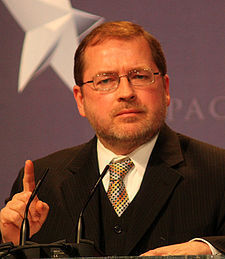Opposition To Spending Cuts Makes Taxes Higher Than They Otherwise Would Be

The long-term level of taxation is determined by the level of spending. Currently, spending is on autopilot to increase from year to year. But the President of the United States supported by many members of his political party is pushing efforts to reduce spending relative to baseline. Senator Tom Coburn of Oklahoma seems to understand that if you want taxes to be low, what you want to do is find a way to say yes to the President on this score. But conservative orthodoxy, enforced by Grover Norquist and others, says that conservatives should say "no" on the grounds that Democratic spending-cutters also want to increase taxes.
Nick Schultz at the AEI blog tries to explain why the orthodoxy makes sense:
What they are missing are the implications of what I call Wallison's Maxim—"it is far easier to spend than to tax."
Once this idea is grasped, it becomes clear why it is not a "compromise" when the Republicans agree to tax increases while the Democrats agree to spending cuts. Without a mechanism that ties spending to tax revenues—like the balanced budget requirement in state constitutions—tax increases don't necessarily decrease or eliminate a deficit.
History supports this. Given Wallison's Maxim, the real friends of big government aren't tax hawks. They are folks who refuse serious institutional restraints on spending. Matt even identifies those people—"the wing of the Democratic Party that disagrees with Obama about the desirability of enacting spending cuts."
This completely misreads the situation. In the current political configuration, conservative Republicans + Barack Obama + Democrats who are to Obama's right = a working legislative majority. What's more, both Barack Obama and conservative Republicans seem to favor spending cuts. So why aren't such cuts passing? Well at the moment they're not passing because Obama and the Obama faction of the Democratic Party are insisting that spending cuts must be paired with tax increases, and conservative Republicans are rejecting that proposal. But the correct way to understand the Wallison point is that taxes are irrelevant—money that's spent will be paid for out of taxes. Spending cuts are both necessary and sufficient to reduce the long-term level of taxation. And since once spent money has to be repaid with interest, delay induces higher taxes. What spending cutters need to do is learn to take "yes" for an answer.
Alternatively, they can let Digby and I have the last laugh.
NB: I don't think the current conservative movement posture is irrational, it's just inconsistent with its professed desire to make the American tax burden as low as possible over the long run. This goal just isn't nearly as important to the conservative movement in practice as it likes to tell itself.


Matthew Yglesias's Blog
- Matthew Yglesias's profile
- 72 followers



